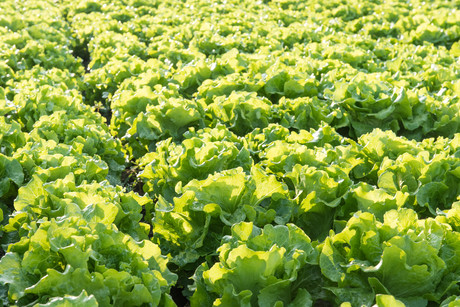How can farmers improve soil performance?

A report has found that soil retains water better if practices that increase levels of soil carbon are used in farming.
The study, conducted by the Union of Concerned Scientists (UCS), involved more than 150 experiments on six continents and is a major boost to the compost industry, which has long been espousing the benefits of carbon-rich soil.
Dave Cullen, co-owner of composting company C-Wise, said the study backed up everything his team had been passionately working on for the last 20 years.
“Building soil carbon is a major contributing factor to improved soil performance. Using compost is one of the easier methods of adding carbon to the soil,” said Cullen.
“Increasing soil carbon is the first step to improving water retention and nutrient effectiveness.
“We’ve seen anecdotal evidence of farmers seeing big increases in crops by dealing with the carbon levels in their soil, and now this research backs it up.”
Gingin farmer Glenn Dobra from Dobra Gardens has been growing lettuce and spinach for more than 30 years, and is a big subscriber to soil improvement, having practised it for the past 15 years.
“For the first 15 years we really struggled with inconsistent plant growth and poor seedling health because we were given the wrong advice,” said Dobra.
“Since we began using C-Wise’s compost 15 years ago, we’ve noticed a marked improvement in seedling health and consistency, as well as an overall improvement in soil quality in the fields.”
“It’s resulted in us having to use only one-third of the recommended fertiliser application in our fields due to the improvement of the soil’s water-holding capacity and nutrient balance.”
Another farmer, commercial potato and avocado grower Dean French, has been using compost in his farming practices for the last three years with positive results.
Other practices such as no tilling, crop cover and rotational planting are also strategies that help soil absorb and retain water.
Cullen said many farmers are taking steps towards increasing carbon levels in their soil by doing the following:
- Using compost in soil to improve carbon levels.
- Growing a cover crop, such as legumes, to aerate the soil and replenish nutrients.
- Not overworking the soil with tilling and not leaving bare ground.
- Using mulch to protect the soil and plant root mass from heat stress and reduce evaporation from the soil.
“We want to retain and increase the carbon in the soil by using compost and other inputs and understanding, rather than leaving it floating about in the atmosphere, which heats up the planet,” he said.
“Carbon is a neglected element in our world — we’ve forgotten how beneficial it can be to our soil, our food and our grower industry.”
Remote control for water and wastewater in Hawke's Bay, NZ
Ovarro's Kingfisher CP-35 remote RTUs were chosen by Hastings District Council and Napier...
Thirsty emus look to smart solar for their daily drink
A solar-powered irrigation project has been designed to help ensure the sustainability and...
Strategic priorities for Australia's water utilities in 2024
Facing a rapidly growing population and long-term climate change, Australia's water utilities...











